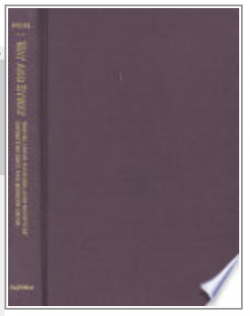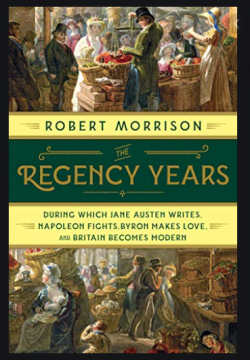Way and byway : Taoism, local religion, and models of divinity in Sung and modern China

Buy online ($)
Type
Book
Authors
ISBN 10
0520207580
Category
200-299 Religion
[ Browse Items ]
Publication Year
2002
Publisher
Pages
364
Abstract
Using a combination of newly mined Sung sources and modern ethnography, this book addresses questions that have perplexed China scholars in recent years. Were Chinese gods celestial officials, governing the fate and fortunes of their worshippers as China's own bureaucracy governed their worldly lives? Or were they personal beings, patrons or parents or guardians, offering protection in exchange for reverence and sacrifice? To answer these questions the author examines the professional exorcist sects and rising Immortals' cults of the Sung dynasty alongside ritual practices in contemporary Taiwan and Hong Kong, as well as miracle tales, liturgies, spirit law codes, devotional poetry, and sacred geographies of the eleventh through thirteenth centuries. Drawing upon historical and anthropological evidence, he argues that two contrasting and contending models informed how the Chinese saw and see their gods. These models were used separately or in creative combination to articulate widely varying religious standpoints and competing ideas of both secular and divine power. Whether gods were bureaucrats or personal protectors depended, and still depends, he says, on who worships them, in what setting, and for what purposes.
Description
Publisher Comments
Using a combination of newly mined Sung sources and modern ethnography, Robert Hymes addresses questions that have perplexed China scholars in recent years. Were Chinese gods celestial officials, governing the fate and fortunes of their worshippers as China's own bureaucracy governed their worldly lives? Or were they personal beings, patrons or parents or guardians, offering protection in exchange for reverence and sacrifice?
To answer these questions Hymes examines the professional exorcist sects and rising Immortals' cults of the Sung dynasty alongside ritual practices in contemporary Taiwan and Hong Kong, as well as miracle tales, liturgies, spirit law codes, devotional poetry, and sacred geographies of the eleventh through thirteenth centuries. Drawing upon historical and anthropological evidence, he argues that two contrasting and contending models informed how the Chinese saw and see their gods. These models were used separately or in creative combination to articulate widely varying religious standpoints and competing ideas of both secular and divine power. Whether gods were bureaucrats or personal protectors depended, and still depends, says Hymes, on who worships them, in what setting, and for what purposes.
Synopsis
"Only Robert Hymes could have produced such a vivid, fascinating portrait of a Taoist mountain, with its immortals, its clergy, and its devotees. Extensive translations of poetry, ghost stories, and canonical sources make it possible for the first time to glimpse the richness of life in a Taoist community in the distant past."and#151;Valerie Hansen, author of The Open Empire: A History of China to 1600
About the Author
Robert Hymes is Professor of Chinese History at Columbia University. He is coeditor of Ordering the World: Approaches to State and Society in Sung Dynasty China (California, 1993) and author of Statesmen and Gentlemen: The Elite of Fu-chou, Chiang-hsi, in Northern and Southern Sung (1987).
Using a combination of newly mined Sung sources and modern ethnography, Robert Hymes addresses questions that have perplexed China scholars in recent years. Were Chinese gods celestial officials, governing the fate and fortunes of their worshippers as China's own bureaucracy governed their worldly lives? Or were they personal beings, patrons or parents or guardians, offering protection in exchange for reverence and sacrifice?
To answer these questions Hymes examines the professional exorcist sects and rising Immortals' cults of the Sung dynasty alongside ritual practices in contemporary Taiwan and Hong Kong, as well as miracle tales, liturgies, spirit law codes, devotional poetry, and sacred geographies of the eleventh through thirteenth centuries. Drawing upon historical and anthropological evidence, he argues that two contrasting and contending models informed how the Chinese saw and see their gods. These models were used separately or in creative combination to articulate widely varying religious standpoints and competing ideas of both secular and divine power. Whether gods were bureaucrats or personal protectors depended, and still depends, says Hymes, on who worships them, in what setting, and for what purposes.
Synopsis
"Only Robert Hymes could have produced such a vivid, fascinating portrait of a Taoist mountain, with its immortals, its clergy, and its devotees. Extensive translations of poetry, ghost stories, and canonical sources make it possible for the first time to glimpse the richness of life in a Taoist community in the distant past."and#151;Valerie Hansen, author of The Open Empire: A History of China to 1600
About the Author
Robert Hymes is Professor of Chinese History at Columbia University. He is coeditor of Ordering the World: Approaches to State and Society in Sung Dynasty China (California, 1993) and author of Statesmen and Gentlemen: The Elite of Fu-chou, Chiang-hsi, in Northern and Southern Sung (1987).
Biblio Notes
Notes:
Includes bibliographical references (p. 329-337) and index.
Includes bibliographical references (p. 329-337) and index.
Number of Copies
1
| Library | Accession No | Call No | Copy No | Edition | Location | Availability |
|---|---|---|---|---|---|---|
| Main | 14 |
299.51 HYM Religion |
1 | Yes |




